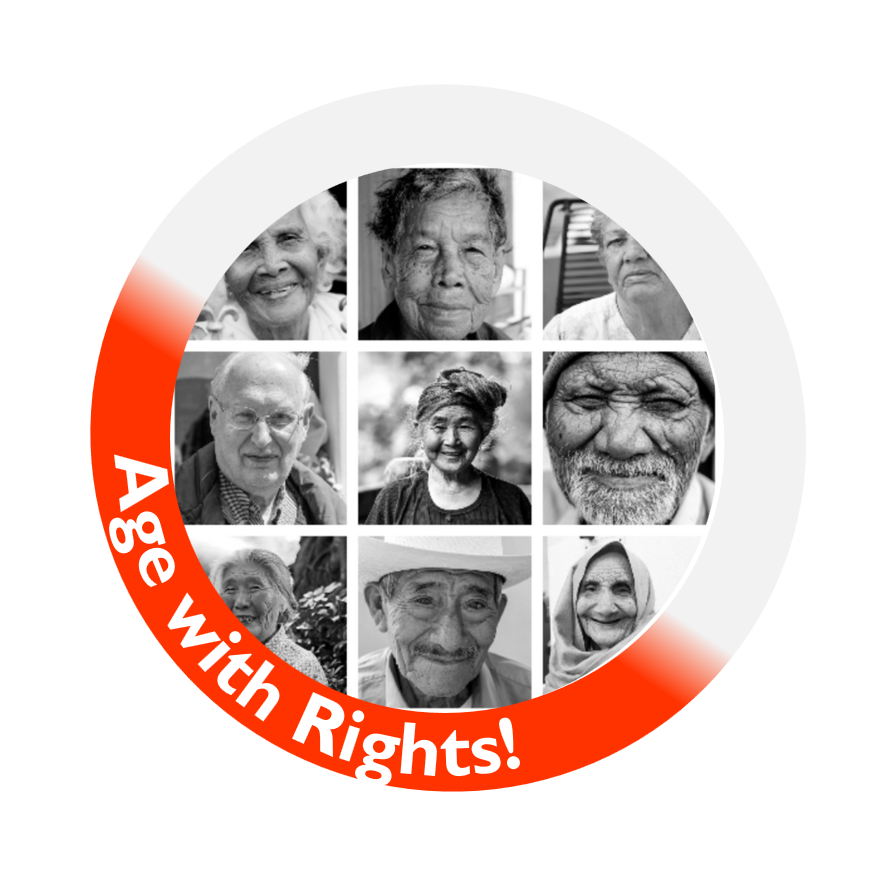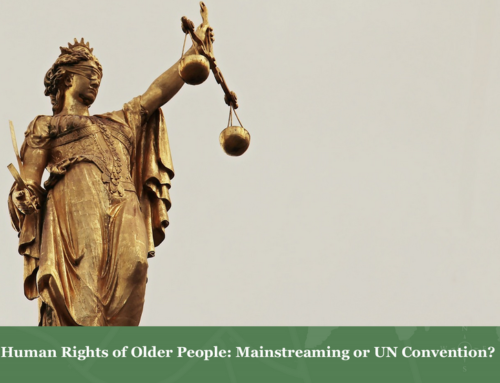COVID-19 shines a sobering spotlight on the deeply rooted discrimination and inequities against old persons worldwide. We can no longer justify inaction and complacency. Therefore, it is with loud cheers that we applauded the 146 Member States who signed a statement of support for the UN Secretary General’s “Policy Brief: The impact of COVID-19 on Older Person”.
The policy brief covers a range of recommendations, including a call to accelerate the development of proposals for an international legal instrument that promotes and protects the human rights and dignity of older persons.
So, it is now, more than ever, that we need to rally together for a convention on rights of older people. Continue reading to find out why and how.
Human Rights
So, what are human rights?
Human rights are rights that we have simply because we are members of the human family. States, around the world, protect, enforce, and fulfill human rights. We, as rights holders, speak up and defend our rights when they are violated or threatened.
The Universal Declaration of Human Rights (UDHR) is the first international rights instrument. The UN General Assembly adopted UDHR in 1948. Everyone is entitled to the 30 rights, “without distinction of any kind, such as race, colour, sex, language, religion, political or other opinion, national or social origin, property, birth or other status.” These rights redress the inequalities and rights violations witnessed during World War II.
UDHR has become the foundation for 43 international human rights laws and 17 international human rights conventions. States bring the convention back to their countries for ratification after adoption at the UN General Assembly. If a State ratifies the convention, it will implement the convention through new legislation, laws, and policies.
Human Rights, Aging, and the Older Person
So why is there a movement towards a convention for the rights of older persons?
- We are living longer than we ever thought possible. Rights instruments need to account for the complexities and needs of longevity. The 100-year life was beyond imagination in 1948 when UN General Assembly adopted UDHR. Global life expectancy at birth is 47 years in 1950 and 72 years in 2020. Life expectancy at birth across OECD countries reached 80 in 2019.
- The growth in rights holders age 60 and older outpace other age groups by multiple folds. We need to hear and respect their voices. Globally, the 60 and over age group grew 5.2 times between 1950 to 2020. It will grow potentially another 1.9 times by 2050. Comparatively, the rest of the age groups collectively grew 2.9 times between 1950 to 2020. They will grow potentially another 1.1 times by 2050. In 2020, there are 1.05 billion people worldwide age 60 and over. This is 21% of the world population.
- Existing international, regional, and national human rights instruments do not provide sufficient coverage on aging issues and older persons. Rights violations and inequities experienced by older persons worldwide during COVID cannot paint the picture of existing legislative, policy, and program gaps any more clearly. Universal Declaration of Human Rights, the foundation for other international rights instruments, did not prohibit “age” as a discriminating distinction, among the list of distinctions it listed.
- Ageism is rampant. The value and potential of older age are ignored. We need to recognize “Age” as an indefensible form of discrimination and an intersecting identity throughout our lives. States need to support this convention as they do with conventions on other intersecting identities such as race, gender, and disabilities.
Age with Rights
In support of the movement for the rights of older people, a convention for these rights, and the upcoming Open-Ended Work Group on Ageing sessions, members of the Global Alliance for the Rights of Older People created the “Age with Rights” campaign. The rallying cry embodies some of the points shared above and so much more! Draw inspirations from the campaign and use its tools in your everyday advocacy work.
In the coming months, there will be more “rights” specific blogs to spark your thinking and discussions on why and how a convention for the rights of older people today will benefit all in society today and tomorrow.
Check out more Age Knowble #AgeWithRights blogs and videos here.






